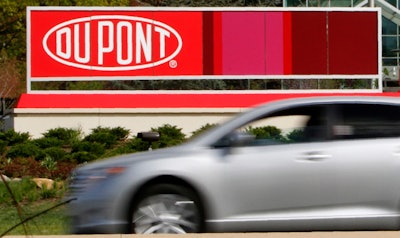
An appeals court in Cincinnati recently heard arguments in a lawsuit that industry experts said could shape the future of thousands of tort cases against chemical companies.
The case pertains to a 2004 settlement against Carla Marie Bartlett, an Ohio woman who blamed her kidney cancer on contaminated water from a nearby DuPont plant.
DuPont countered that Bartlett's exposure levels were too low and said that obesity was a factor, but a lower court found that the settlement, in part, prohibited the company from presenting dosage levels to the jury.
Bartlett won a verdict of $1.6 million.
Now, attorneys for DuPont told a federal appeals court last week that the verdict should be overturned, and that the company should be able to tell juries about the chemical exposure levels of people allegedly sickened by its former West Virginia plant.
Bartlett's attorneys countered that the company's arguments, if successful, would essentially invalidate the 2004 settlement.
"They don’t want to say C8 is capable of causing these diseases, even though that is what they agreed to in the settlement,” Bartlett attorney John Nalbandian told the court Friday, according to Bloomberg.
About 3,500 individuals filed personal injury lawsuits against the Delaware chemical giant after a settlement in a 2004 class-action lawsuit linked eight serious health problems to exposure to C8.
DuPont used C8 — also known as perfluorooctanoic acid or PFOA — to make Teflon non-stick coating for decades at its plant near Parkersburg, but the chemical leaked into the Ohio River and other nearby waterways.
The appeals court judge has noted that the original settlement authorized lawsuits by those 3,500 people but excluded tens of thousands of additional claims. A victory by DuPont on appeal, he suggested, could reopen the courtroom to those individuals.
Industry groups, however, countered that upholding the decision in the Bartlett case could set a disturbing precedent for companies that “find themselves frequent litigants in toxic-tort cases.”
The federal judge overseeing all 3,500 cases recently signaled that he hopes DuPont will settle its cases. The claims are currently set to go to court at a rate of 40 per year beginning next year.






















